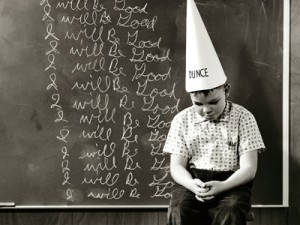People in positions of power are afflicted with a severe problem: they don’t get yelled at often enough. Very rarely will they hear how they’re failing; how they can do better; or anything how their choices impact negatively/positively.
We as leaders need to be empathetic, willing and eager to hear what our colleagues have to say.
We as colleagues and coworkers need to be confident to provide direct, constructive criticism.
I err on the side that “the blame’s on me” whenever there is an internal issue, colleague matter, or generally bad news.
Here’s multi-billionaire entrepreneur Ben Horowitz’ assessment on messing up:
Even if you know what you are doing, things go wrong. Things go wrong, because building a multi-faceted human organization to compete and win in a dynamic, highly competitive market turns out to be really hard. If CEOs were graded on a curve, the mean on the test would be 22 out of a 100. This kind of mean can be psychologically challenging for a straight A student. It is particularly challenging, because nobody tells you that the mean is 22.
When people in my company would complain about something or other being broken such as the expense reporting process, I would joke that it was all my fault. The joke was funny, because it wasn’t really a joke. Every problem in the company was indeed my fault. As the founding CEO, every hire and every decision that the company ever made happened under my direction. Unlike a hired gun that comes in and blames all of the problems on the prior regime, there was literally nobody for me to blame.
I’m not a CEO but I am a CoFounder of the company. Ben makes it hit home in his assessment of the challenges Founders/CEOs get every single day. It’s a great article and definitely worth reading.
I’m going to make a “call to action” for everyone out there – figure out one major problem in your career, figure out the various stakeholders and their stances, and plot out a plan to resolve. I know most people are not CEOs or Founders, but you can be the “Founder” of your career.
Ultimately, the blame’s on me. It’s also on us. It’ll only get better when we work to make it better, and recognize we need each other to make it better.


Just as it’s important that we know it’s our responsibility to recognize and acknowledge mistakes, it is also within our power to fix anything.